|
Posted On: July 17, 2003 22:30
Name: David Jenkins
Email: Mr.Toad@pobox.com
Message: When I ordered the Custom Class A monoblocks and Custom
pre-amp, I hadn't heard any of the equipment that Ideal Innovations makes, so it
was a bit of a risk, mitigated somewhat by the fact that the equipment was very
reasonably priced.
Over the years I have gone through home built tube amps, Quad II tube amps,
and Rogers, and Quad solid state amps. I had my eye on the new Quad II-40 tube
amplifiers, but they seemed overpriced. So, when the Ideal Innovation monoblocks
arrived along with Syd, the designer of the amps, I hooked them up eagerly to
see how they sounded - placing them on the shelf had to wait until later since
they seemed to be heavy enough to be the mother of all monoblocks. My speakers
are Paradigm Eclipse - reasonably efficient dipoles (I am waiting to try the
amps on my mothballed Quad ELS 57 speakers). As soon as my first CD started, I
knew these amplifiers were something special; there was a sense of air around
the instruments that I hadn't heard before on any of my previous amplifiers.
This was an initial impression, of course, so I settled down in the evening
to listen to a variety of music, still using a solid state pre-amp, since the
new tube pre-amp wasn't ready, yet. Further listening confirmed my first
impressions; the bass was as solid and deep as my solid state amp and the treble
as extended and detailed - but with less of a gritty quality at high levels.
Most of the magic, though, occurs in the mid-range: there is a sense of air
around everything (perhaps this is low level ambience being reproduced more
effectively), a better impression of the instruments being layered front to back
and a general warmth - without loss of detail.
The monoblocks are rated at 27 Watts in class A and 40 Watts class AB (the
first 20 Watts being Class A); the mode is selected with a switch on the rear.
My solid state power amp (Quad 405) is rated at 100 Watts; the 40 Watt
monoblocks sound louder before audible distortion sets in. They coped with the
Telarc 1812, Eric Clapton, jazz and Glenn Gould's humming with equal aplomb. The
Class A aspect of these monoblocks means that they do get hot, even in Class AB
mode; useful in the winter; a small price to pay in the summer.
The monoblocks are also a delight cosmetically: the glitz and flash of
aluminum panels is thankfully absent. Instead, there is solid (very solid)
workmanship, a hefty steel chassis, quality components and great attention to
detail - curved tube cages, felt lined at contact points, immaculate wiring,
machined solid aluminum knobs, ceramic sockets for power tubes, tube
rectification, etc.
All of this made my wait for the pre-amp to be completed even harder; I had
high expectations for it. Part of the wait was my own fault, since I had asked
for a number of my own tweaks to be made to the pre-amp. When it finally arrived
- along with Syd, again - I wired everything up to it with great excitement. I
found the same attention to detail on the pre-amp: curved tube cage; a NOS
(1957!) 6X4 rectifier tube, and so on. The sound on CDs, tuner and tape was
again slightly improved over my Quad 33, but the phono input from my SME/Shure
V15 combination did not sound right at all; the RIAA equalization sounded off.
After a number of conversations with Syd, he wanted to take the pre-amp back to
upgrade it with an improved RIAA circuit. After what seemed like a very long
wait (it actually wasn't), I had the pre-amp back and settled down to some
serious vinyl listening. An A/B comparison with the Quad 33 quickly revealed
that the RIAA was now right and the sound was a delight: once again, most of the
improvement was in the midrange. The ambience was enhanced, the sound was smooth
and liquid and the depth perception was heightened. In comparison, the Quad 33
sounded flat. The pre-amp and power amps are also incredibly quiet: with no
signal on full gain, there is silence on all but the phono input. The phono
input on full has a little noise (full gain, no signal) - no more (perhaps less)
than a very good solid state amp. I suspect this is a reflection of careful
wiring, DC heater supplies and a sold chassis. As an aside, the Quad II 40
apparently has a hum problem when the gain control is touched. The pre-amp come
with a 'loudness control'. This is something that I thought I wouldn't use, but
it actually works rather well in warming up old, dry recordings - without making
them sound muddy.
So am I satisfied? Yes! The only problem is, I have to find time to listen to
my entire music collection again. I notice that Syd has a 'no questions asked
return policy'. Forget it, Syd, you can't have these back!
I also take some satisfaction in knowing that these amplifiers were carefully
hand made by someone who cares how they turn out; no mass production here.
One final note: Syd, the owner is a great person to deal with. You will not
find a big company so willing to accommodate your wishes.
If you are dithering on whether to buy an amplifier from Ideal Innovations,
don't hesitate; do it now before the price goes up!
_______
David Jenkins
|
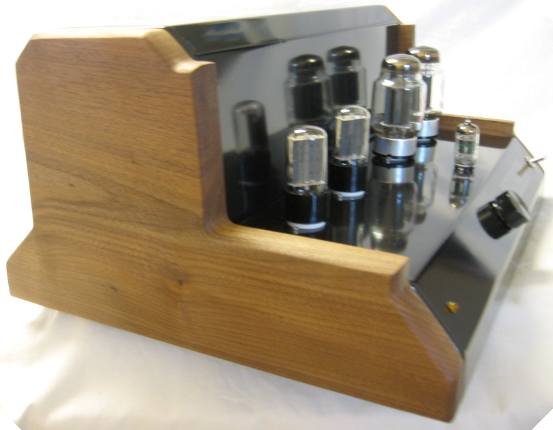
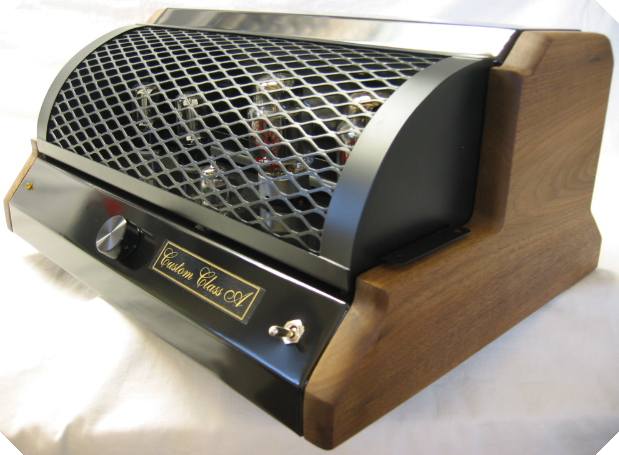
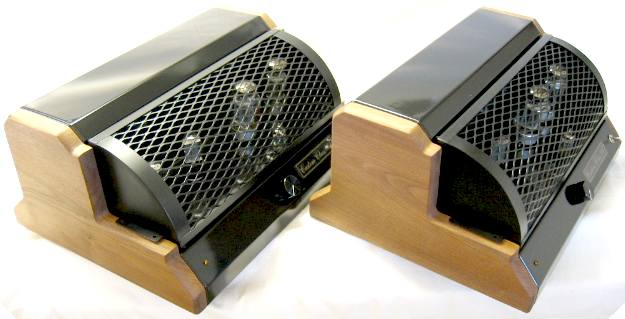
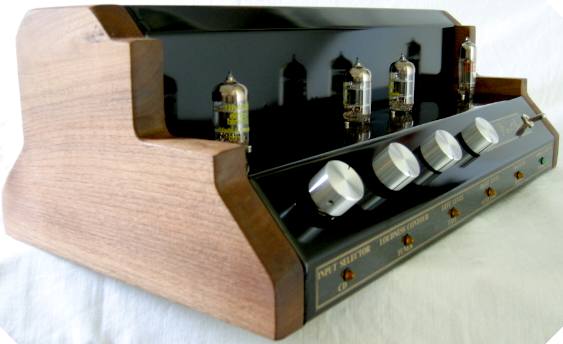
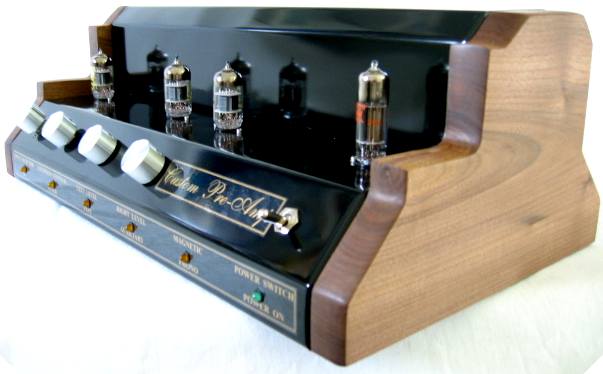
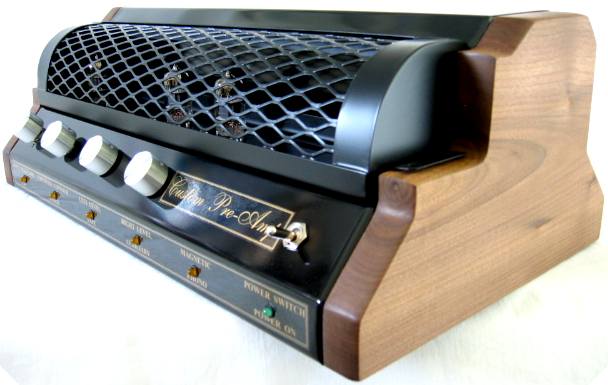
|